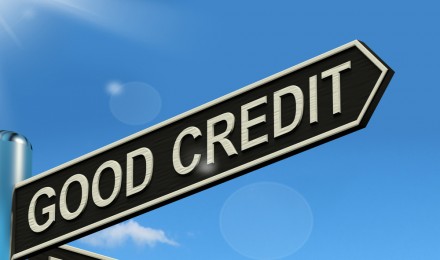Some women have little regards for their credit history and credit score. And if married, these women may rely on their husband’s credit to purchase a house, a car or obtain a credit card. While this method works for some households, many women do not have a husband to fall back on.
If you’re a single woman, it is important that you understand how credit and credit cards work. Building your own credit history and maintaining a high credit score can open the door to many financing opportunities. If you don’t have credit or have less-than-perfect credit, now is the time to make improvements.
Here are four facts about credit and credit cards that every single woman should know.
1. If applying for a new credit card to help build or repair a damaged credit history, you can include income from child support and alimony on your application. Credit card applications inquire about annual income. Some people mistakenly only list income from their employer. However, income from an employer is not the only decisive factor. Credit card companies accept all types of income. This includes income from child support, alimony, retirement and disability.
2. If you’re recently divorced, you may hastily close joint credit card accounts to separate your finances. This is normal after divorcing a spouse. However, closing a credit card account can lower your credit score. With this said, don’t close all your accounts within a short period of time. Pay off the accounts in full and then close them slowly over time. For example, you might close one account today, wait three or four months, and then close another account.
3. When applying for a new credit card to improve your credit, limit yourself. There are credit cards for people with bad credit and no credit history. Because these credit cards are easier to obtain, you may acquire several new credit card accounts. Having a large amount of available credit increases the temptation to spend. Rather than open four or five accounts, start with one or two credit cards — perhaps one major credit card and one retail store card.
4. Practice good credit card habits. If new to the world of credit, mistakes are inevitable. Understand, however, the more mistakes you make, the harder it is to build a good credit history. You may excitedly go shopping once your credit card arrives in the mail. Losing sight of the big picture may result in excessive spending and major debt. As a rule, your credit card utilization should not exceed 30%. If you’re given a $1000 credit limit, your balance should never exceed $300. In conjunction with keeping your balances low, always have your due dates in mind and pay your bills on time. This way, you avoid late fees and a negative credit report update. In addition to timeliness and self-control, make a habit of checking your credit report at least once a year. Visit AnnualCreditReport.com for a free copy.
Some women have little regards for their credit history and credit score. And if married, these women may rely on their husband’s credit to purchase a house, a car or obtain a credit card. While this method works for some households, many women do not have a husband to fall back on.
If you’re a single woman, it is important that you understand how credit and credit cards work. Building your own credit history and maintaining a high credit score can open the door to many financing opportunities. If you don’t have credit or have less-than-perfect credit, now is the time to make improvements.
Here are four facts about credit and credit cards that every single woman should know.
1. If applying for a new credit card to help build or repair a damaged credit history, you can include income from child support and alimony on your application. Credit card applications inquire about annual income. Some people mistakenly only list income from their employer. However, income from an employer is not the only decisive factor. Credit card companies accept all types of income. This includes income from child support, alimony, retirement and disability.
2. If you’re recently divorced, you may hastily close joint credit card accounts to separate your finances. This is normal after divorcing a spouse. However, closing a credit card account can lower your credit score. With this said, don’t close all your accounts within a short period of time. Pay off the accounts in full and then close them slowly over time. For example, you might close one account today, wait three or four months, and then close another account.
3. When applying for a new credit card to improve your credit, limit yourself. There are credit cards for people with bad credit and no credit history. Because these credit cards are easier to obtain, you may acquire several new credit card accounts. Having a large amount of available credit increases the temptation to spend. Rather than open four or five accounts, start with one or two credit cards — perhaps one major credit card and one retail store card.
4. Practice good credit card habits. If new to the world of credit, mistakes are inevitable. Understand, however, the more mistakes you make, the harder it is to build a good credit history. You may excitedly go shopping once your credit card arrives in the mail. Losing sight of the big picture may result in excessive spending and major debt. As a rule, your credit card utilization should not exceed 30%. If you’re given a $1000 credit limit, your balance should never exceed $300. In conjunction with keeping your balances low, always have your due dates in mind and pay your bills on time. This way, you avoid late fees and a negative credit report update. In addition to timeliness and self-control, make a habit of checking your credit report at least once a year. Visit AnnualCreditReport.com for a free copy.







